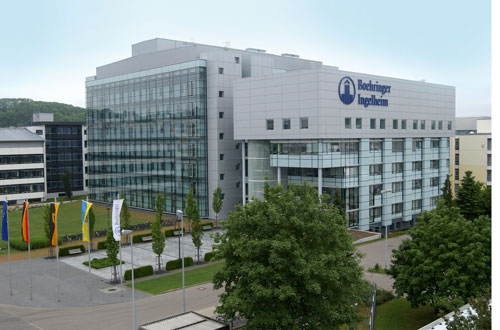
Boehringer Ingelheim has added another platform in its fibrotic disease R&D, partnering with Enleofen on preclinical-stage interleukin-11 inhibitors with potential in non-alcoholic steatohepatitis (NASH).
The German pharma group has acquired worldwide rights to Singapore-based Enleofen’s anti-IL-11 programme, a potentially first-in-class therapy for a range of human diseases characterised by fibrosis and inflammation, in what could be a multibillion-dollar deal.
Inhibiting IL-11 has been shown in preclinical studies to prevent and reverse inflammation and fibrosis as well as restore function in a range of organs, including liver, lung, kidney, retina, bowel, heart and skin, says Boehringer.
Founded in 2017, Enleofen span out of the National Heart Centre Singapore (NHCS) and SingHealth Duke-NUS Academic Medical Centre (AMC), taking out a license to IL-11-related intellectual property generated by the institutions.
It’s the first licensing deal for the company and is also thought to be the largest ever agreed by a Singapore biotech, with Boehringer agreeing to pay up to €1bn ($1.1bn) for each new product that makes it to the market and meets commercial objectives.
That’s all many years away of course, but the deal reinforces Boehringer’s determination to add to a fibrotic disease franchise currently headed by Ofev (nintedanib), its treatment for idiopathic pulmonary fibrosis (IPF) and interstitial lung disease (ILD).
Ofev is already a blockbuster seller for Boehringer, growing almost 29% to reach €1.1bn in 2018 from its use in IPF alone, ahead of approval in ILD last September.
The anti-IL-11 antibodies covered by the Enleofen deal could have potential in ILD as well as NASH, and reinforces a growing pipeline of projects in this area, acquired through a series of licensing deals as well as its in-house research.
The last couple of years have seen the German group license an Ofev follow-up from Bridge Biotherapeutics and agree an $870m tie-up with Yuhan for a NASH candidate.
That has built on NASH-focused deals dating back several years including a 2015 alliance with Pharmaxis for AOC3 inhibitor BI 1467335 – now discontinued – and a $201m agreement with gene-silencing specialist Dicerna in 2017.
NASH is a hot topic in pharma development at the moment, with a host of companies vying to bring forward new treatments for the disease, which is viewed as an emerging health crisis – and an untapped pharma market. It is characterised by a build-up of fat that can lead to fibrosis, cirrhosis and – in some patients – the need for a liver transplant.
Rates are rising thanks to an increase in obesity and diabetes, which increase the risk of developing the disease, and with improvements in the treatment of viral hepatitis is expected to be the leading cause of liver transplants by 2020. Some predictions put the market potential at $20bn to $35bn a year.
Despite many attempts there is still no approved therapy for NASH, with several late-stage failures including Gilead’s selonsertib, Novartis/Conatus emricasan, and Cymabay’s seladelpar last year.
Meanwhile, Intercept Pharma’s obeticholic acid (OCA) is under priority review at the FDA for the treatment of liver fibrosis due to NASH, and could become the first drug to treat the disease. It is already approved for primary biliary cholangitis (PBC) under the Ocaliva trade name.




